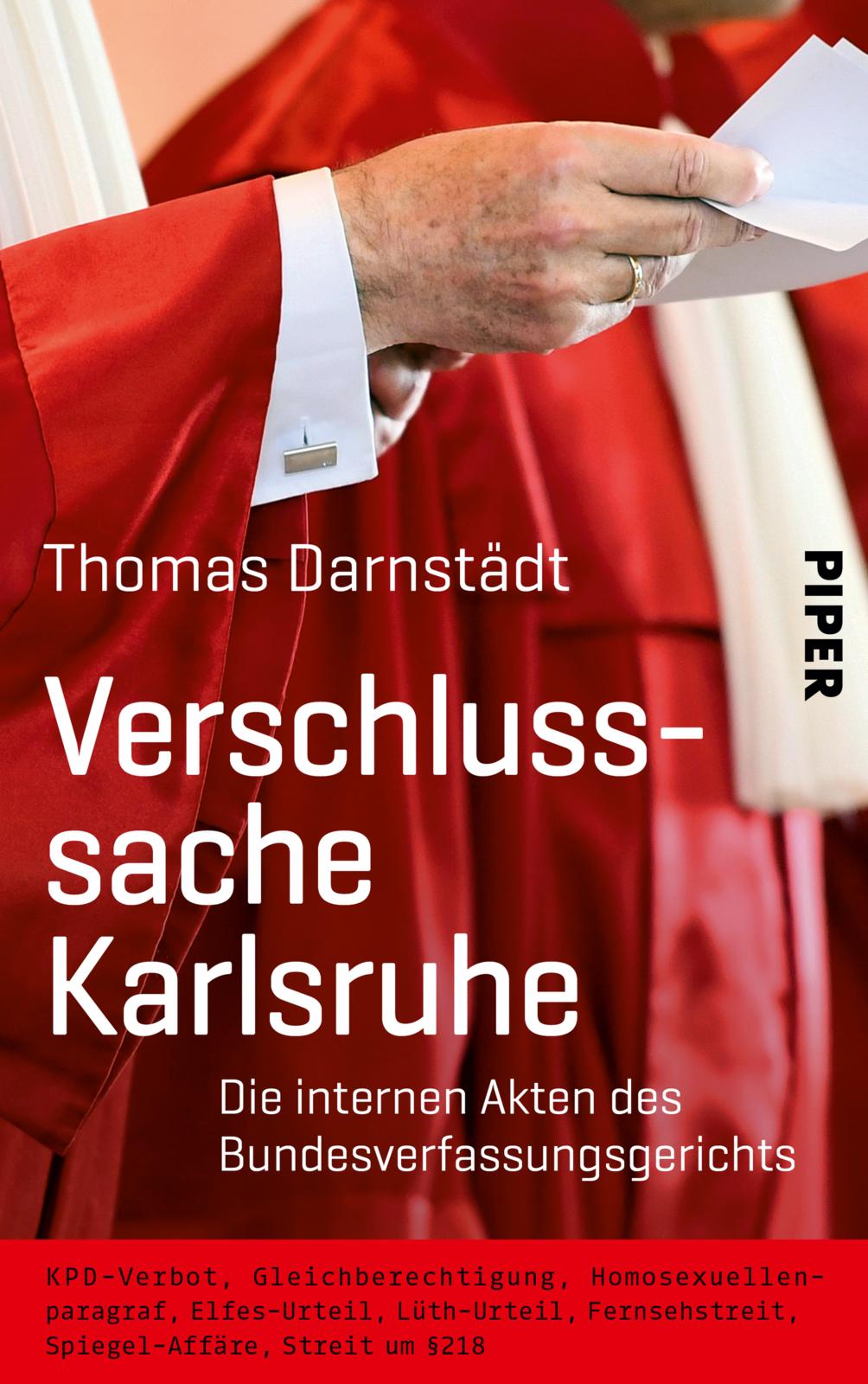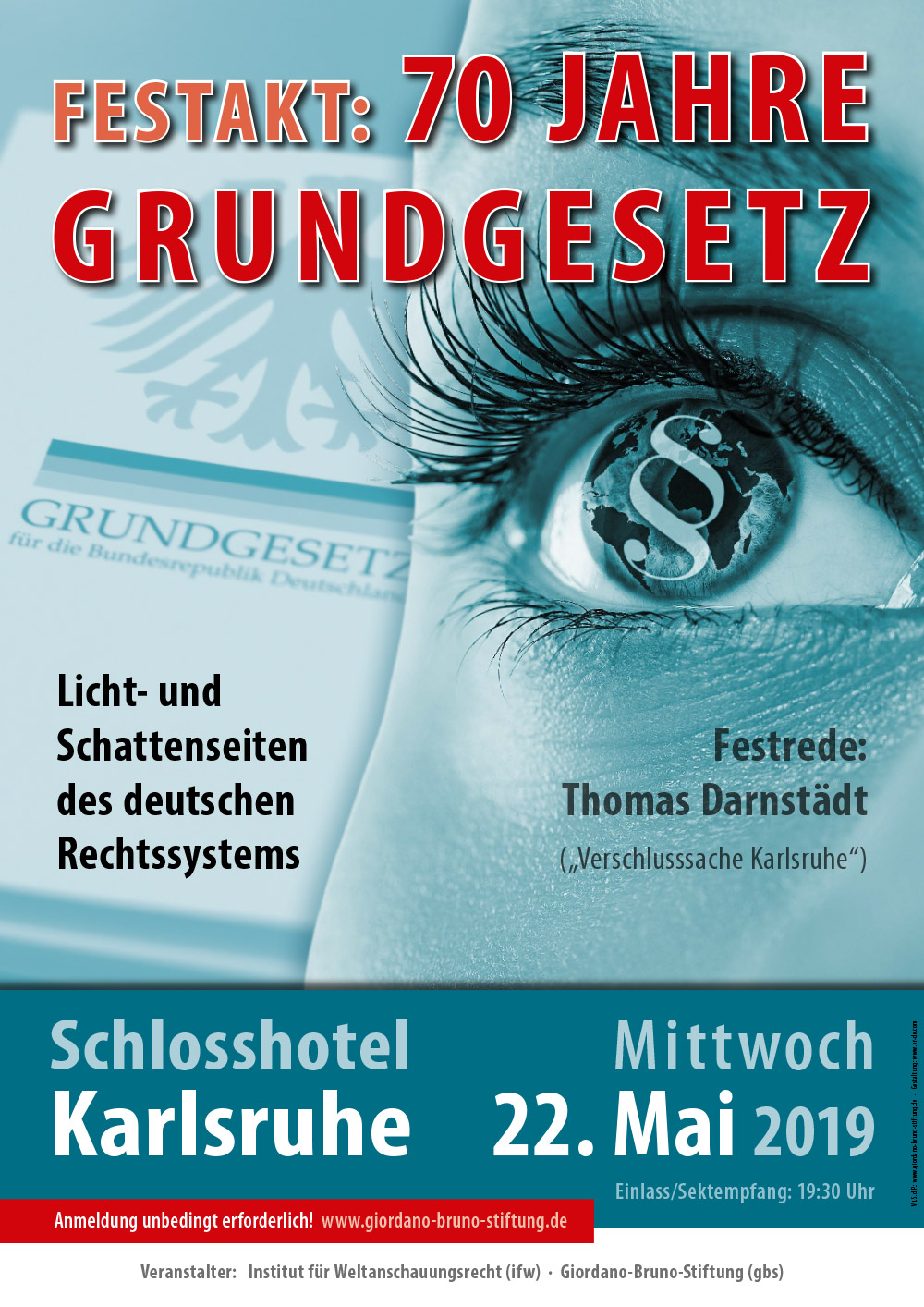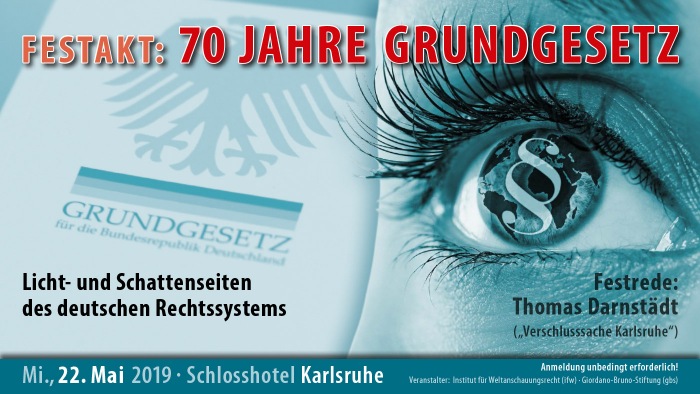Ceremony "70 Years Basic Law" in Karlsruhe
ifw's celebration of the constitution on May 22 focuses on the bright and dark sides of the German legal system
With the Basic Law, which came into force in 1949, essential elements of the UN Declaration of Human Rights adopted one year earlier were incorporated into the German constitution. 70 years of Basic Law are therefore a good reason to celebrate this milestone in German history. At the same time they provide an opportunity to reflect critically on the question of whether the constitutional text is a constitutional reality. For this reason, the ceremony of the Institut für Weltanschauungsrecht (ifw - Institute for Secular Law) on May 22 will not only focus on the bright sides of the German legal system, but also on its dark sides.
 The Institut für Weltanschauungsrecht was able to win an outstanding expert as a keynote speaker for the celebration of the constitution in the venerable Schlosshotel Karlsruhe: Thomas Darnstädt, who holds a PhD in law and journalism, spent decades writing for Spiegel on legal policy, democracy, and the Basic Law. In his highly acclaimed 2018 book "Verschlusssache Karlsruhe: Die internen Akten des Bundesverfassungsgerichts" ("Karlsruhe Classified: The Internal Files of the Federal Constitutional Court"), he masterfully illuminated largely unknown backgrounds of recent German legal history. Hence, Darnstädt describes how the judges in Karlsruhe laid the foundations for a free society after the fall of the National Socialist rule of injustice, and enforced gender equality against the bitter resistance of religious-patriarchal forces.
The Institut für Weltanschauungsrecht was able to win an outstanding expert as a keynote speaker for the celebration of the constitution in the venerable Schlosshotel Karlsruhe: Thomas Darnstädt, who holds a PhD in law and journalism, spent decades writing for Spiegel on legal policy, democracy, and the Basic Law. In his highly acclaimed 2018 book "Verschlusssache Karlsruhe: Die internen Akten des Bundesverfassungsgerichts" ("Karlsruhe Classified: The Internal Files of the Federal Constitutional Court"), he masterfully illuminated largely unknown backgrounds of recent German legal history. Hence, Darnstädt describes how the judges in Karlsruhe laid the foundations for a free society after the fall of the National Socialist rule of injustice, and enforced gender equality against the bitter resistance of religious-patriarchal forces.
Darnstädt also describes the dark moments of the Federal Constitutional Court, for example in the evaluation of the persecution of homosexuals in the Federal Republic (§ 175 of the German Penal Code) or in the debate about abortion (§ 218 of the German Penal Code). In both cases, the highest German court played an inglorious role, following the pressure of ultra-conservative Christian circles and placing religious morality above the self-determination rights of the individual as established in the Basic Law. After reading Darnstädt's book, former FDP and SPD top politician Ingrid Matthäus-Maier, who advocated the liberalization of abortion in the 1970s and 1990s in the German Bundestag and who will also participate in the discussion in Schlosshotel Karlsruhe on May 22, confessed that she had "tears of rage" in her eyes when she became aware of the full extent of the church's influence on the Federal Constitutional Court.
 The ifw ceremony at the Schlosshotel Karlsruhe (Bahnhofplatz 2, 76137 Karlsruhe) begins with a champagne reception at 7:30 pm. After Thomas Darnstädt's keynote speech and the subsequent panel discussion, a constitutional celebration with snacks and drinks, music, and good conversation will take place. Admission to the event is free, but registration via this web form is mandatory! (There will be no separate confirmation of your reservation, if there are no seats left, you will be informed immediately).
The ifw ceremony at the Schlosshotel Karlsruhe (Bahnhofplatz 2, 76137 Karlsruhe) begins with a champagne reception at 7:30 pm. After Thomas Darnstädt's keynote speech and the subsequent panel discussion, a constitutional celebration with snacks and drinks, music, and good conversation will take place. Admission to the event is free, but registration via this web form is mandatory! (There will be no separate confirmation of your reservation, if there are no seats left, you will be informed immediately).

